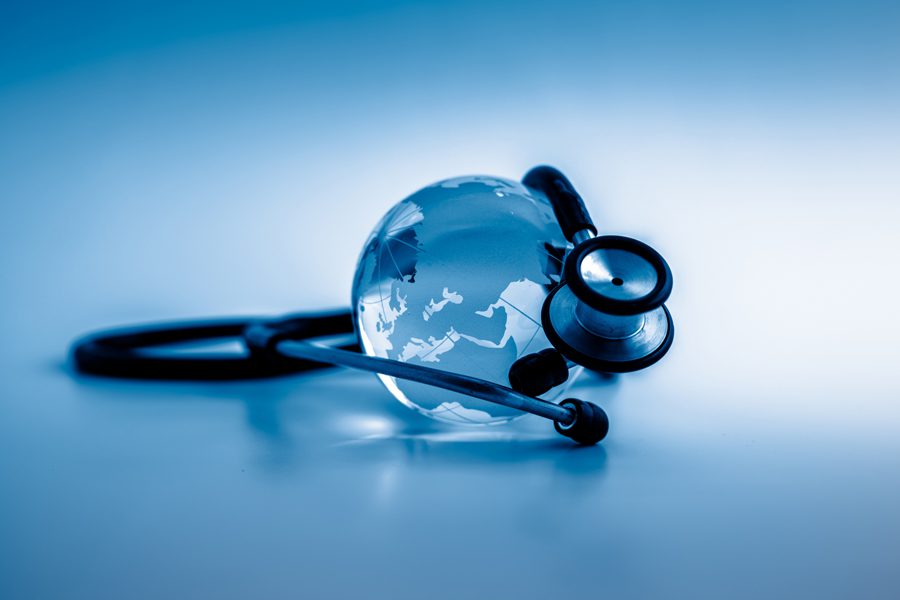Experts have noted that Dubai’s medical community has been performing advanced and high-quality surgeries and medical treatments in fields such as orthopaedics, organ transplants, oncology, and more, which has contributed to the growth of the medical tourism sector in the country.
The UAE and Dubai have established themselves as leading hubs for medical tourism, with a US-based report from the Medical Tourism Association in 2021 ranking the UAE as the top medical tourism destination in the GCC countries.
Dubai, in particular, has been recognized as the top Arab destination for medical tourism by the Global Medical Tourism Index, with six of its medical facilities included in the list of 46 most unique international medical tourism countries.
Since the pandemic, there has been a growing emphasis on preventive health and wellness, and Dubai’s growth in this area has been remarkable, resulting in increased revenues and attracting a high number of medical tourists from around the world in 2021.
According to the Dubai Health Authority, the top five medical tourism areas are aesthetic and cosmetic surgery, dental surgery, fertility and in-vitro fertilisation, orthopaedic and other elective surgeries. As per a DHA report in 2021, Dubai received 630,000 international health tourists and its medical tourism spending reached AED 730M.
One of the reasons for Dubai’s popularity as medical tourism destination is the will and enthusiasm with which the Dubai Health Authority has streamlined the process of getting appointments and scheduling procedures. Commenting on this, Marwan Al Mulla, CEO of the Health Regulation Sector at the DHA, said: “The ease of processes, investment support, Dubai’s location, state-of-the-art infrastructure, and the emirate’s forward-thinking approach have contributed to the growth of high-quality multinational and specialised facilities in the city.”
Alpen Capital’s latest healthcare industry report for the GCC projects the current healthcare expenditure (CHE) in the region to reach $135.5B in 2027, implying an annualised growth rate of 5.4 percent from $104.1B in 2022. During the forecast period, CHE in the GCC countries is anticipated to increase at growth rates ranging from 4.4 percent to 7.4 percent.
Dubai-based health-sector growth expert Vivek Shukla said: “ There are a number of factors for Dubai’s growth in medical tourism. Dubai’s ease of protocols for international patients is incredible. From the point of making appointments via telehealth and digital medicine portals in any of the 34 private and seven public hospitals to arriving in the city, where visas are made available along with ticket bookings, the process is seamless. The city has top doctors and surgeons from across the world, equipment is advanced and sophisticated and so are the diagnostic facilities. The nursing and ancillary staff is highly trained and again, several nationalities work here, thus providing a sense of ease and comfort to any patient belonging to a particular culture or speaking a particular language. The city provides multi-cuisines which are a boon to relatives of the patients. Most medical tourism packages also offer sight-seeing packages for accompanying families. What’s more, a strong and effective insurance network makes it possible for all international insurances to be recognised and processed. Moreover, a robust, health regulatory authority upholds a very strong tradition of accountability and speedy redressal if the need arises. All these factors have worked in the favour of Dubai and that is why it has repeat medical tourists from the world over coming for surgeries ranging from simple orthodontic procedures to the most sophisticated cardiology, orthopaedic and aesthetic cosmetology procedures.”
Another factor that plays a decisive role in medical competency and professionalism is international accreditation. Dr Jamil Ahmed, founder and Managing Director of Prime Health Care Group said that Dubai hospitals could compete with the world’s best healthcare institutions as it offered competitive standards.
“Medical excellence is not a momentary flash-in-the-pan feature. It is a result of a painstaking visionary planning initiated by the government that has included health and wellness in its national health care agenda plans. The impact of this is evident in the results published by the second semi-annual report of Joint Commission International (JCI) , that regularly identifies and measures international best practices. According to the JCI report, the UAE has consistently ranked first globally with over 221 accredited hospitals, medical centres and health facilities and this includes all the top private and public hospitals in the primary, secondary and tertiary care sector in Dubai.”
The Dubai Industrial Strategy was launched in 2016 and the Dubai Health Experience (DHX) launched in 2018. Dubai is on a fast track in capitalising on the medical tourism boom that has gained momentum worldwide post-pandemic, and is working towards a world-class, sustainable healthcare eco system.


